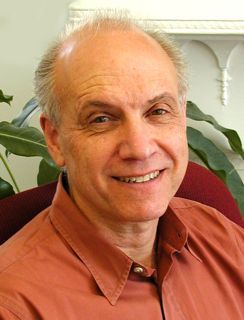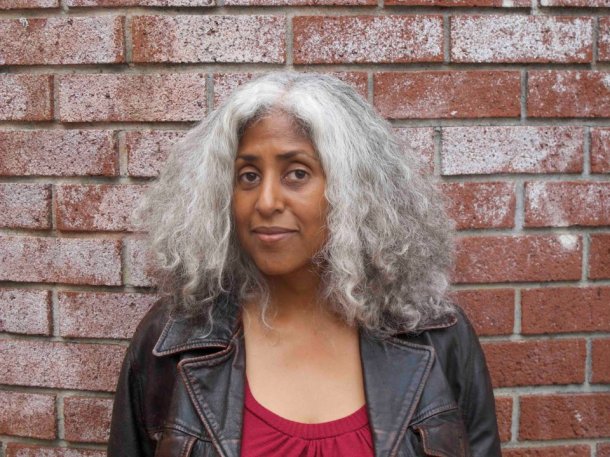Malkia Amala Cyril
Malkia Amala Cyril is the founder and Executive Director of the Center for Media Justice (CMJ), launched in 2008 to strengthen the media activism and communications capacity of grassroots social justice movements. For the past 15 years, Malkia’s award-winning work has empowered local social justice leaders and organizations with the skills and strategies they need to navigate the complex media environment of the 21st century.
Appearances include News for All the People: the Epic Story of Race and the American Media, the New York Times, Politico, Huffington Post, Media Matters, Democracy Now, Essence Magazine, Village Voice, the Advocate, the SF Chronicle and documentaries including Outfoxed, Broadcast Blues, and MissRepresentation.
Gary Delgado
Gary Delgado, Ph. D., is the founder and former Executive Director of the Applied Research Center (ARC), the Center for Third World Organizing (CTWO), and one of the original organizers of ACORN. His most recent work includes the establishment of a racial equity initiative at SEIU, a recent article on racial framing entitled “Kill the Messengers” in the 2012 anthology Racial Formation in the Twenty First Century, and the production of short films on race and public policy.
Richard Healey
Richard Healey is Executive Director of the Grassroots Policy Project (GPP), which he founded in 1994. During the 1980s Richard was involved in disarmament and anti-intervention activities. He was Director of the Coalition for a New Foreign and Military Policy and Nuclear Times magazine. He also served as Director of the Institute for Policy Studies and was a co-founder of the Study Circles Resource Center.
Throughout the 1960s and 1970s Richard was active in the civil rights and anti-war movements. From 1970 to 1982 he helped found and lead the New American Movement, a democratic socialist organization involved in many local organizing efforts, including housing, energy and unemployment. Richard also became involved in community environmental health organizing.
Richard is a board member of the Center for Social Inclusion, the Philanthropic Initiative for Racial Equity, the See Forward Fund, the One World Fund, and the Angelina Fund. He is an advisor to the Solidago Foundation.
He has a B.A. in mathematics from Reed College, a M.A. and Ph.D. in mathematics from UCLA, and a M.P.H. from the Harvard School of Public Health.
 Daniel Martinez HoSang
Daniel Martinez HoSang
Daniel Martinez HoSang is an Associate Professor at the University of Oregon with a joint appointment in the Department of Ethnic Studies and the Department of Political Science. He is the author of Racial Propositions: Ballot Initiatives and the Making of Postwar California (Univ of California Press, 2010), which explores the history of organizing campaigns around racialized ballot measures in California since 1945 and was the recipient of the 2011 James A Rawley Prize of the Organization of American Historians. He is also the co-editor (with Oneka LaBennett and Laura Pulido) of Racial Formation in the 21st Century (University of California Press, 2012).
 Pramila Jayapal
Pramila Jayapal
Pramila Jayapal is a leading national advocate for immigrant, civil and human rights. She is the founder of OneAmerica, Washington state’s largest immigrant advocacy organization, where she served as Executive Director for almost eleven years. (Read: ColorLines article on the founding of Hate Free Zone, in the wake of September 11, 2001 to fight initially against the targeting of Arabs, Muslims and South Asians. She is currently Co-Chair of We Belong Together, a national campaign to engage women in immigration reform. She also works with a number of national organizations on immigration reform, poverty and race; and writes regularly for numerous publications, including Reuters, The Nation and Crosscut.
She is currently a Distinguished Taconic Fellow at the Center for Community Change and a Distinguished Fellow at the University of Washington Law School. She is a featured speaker across the country, speaking at massive rallies, keynoting national conferences, appearing on local and national television and radio and bringing a clear and reasoned voice to some of the most complex issues of our time.
Charlene Sinclair
Charlene Sinclair is the Principal of InSinc Consulting, LLC, a consulting firm that provides comprehensive grassroots organizing and political strategy in addition to targeted organizational development assistance. In this role, she provides strategic policy and power analysis, advice on grassroots organizing strategy, analysis of institutional structural strengths and weaknesses and advice on effective nonprofit management.
Ms. Sinclair also serves as the Program Director for Engaging the Powers. Engaging the Powers is a program designed to train Black and Latino pastors in critical theory, policy and strategy relevant to the development and implementation their social justice ministries. In addition, Ms. Sinclair is a member of the Poverty Initiative at Union Theological Seminary where she is focused on the development of projects designed to create space for low-income leaders, grassroots organizers, public intellectuals and other thinkers to engage in deep dialogue and reflection about the intersection of spirituality and roots of struggles for social and economic justice.
Previously Ms. Sinclair served as the Director of National Campaigns for the Center for Community Change (the Center), one of the nation’s leading organizational voices for traditionally disenfranchised communities. In this role, Ms. Sinclair led the Center’s campaign to cultivate and mobilize the power and influence of low income voters for the 2004 presidential election. This effort was highlighted by the mobilization of over 3000 low income grassroots leaders from around the country in a nationally televised dialogue with six of the then seven democratic presidential candidates.
Ms. Sinclair received a B.S. in Sociology from Trinity College in Hartford, CT and a Masters in Divinity from Union Theological Seminary in New York. Ms. Sinclair is currently pursuing a doctoral degree in Social Ethics from Union.
 Makani Themba
Makani Themba
Makani Themba is executive director of The Praxis Project, a nonprofit organization helping communities use media and policy advocacy to advance health justice. Under her leadership, The Praxis Project has raised more than $20 million for advocacy organizations working in communities of color nationwide. These initiatives include Communities Creating Healthy Environments (C-CHE), an initiative of the Robert Wood Johnson Foundation to support policy advocacy to advance healthy food outlets and safe places to play in communities of color and Building Capacity Building Power, a partnership with Ford Foundation to support grassroots civic engagement.
Makani was previously director of the Transnational Racial Justice Initiative (TRJI), an international project to build capacity among advocates to more effectively address structural racism and leverage tools and best practices from around the world. While at TRJI, she co-authored and edited a “shadow report” on institutional racism and white privilege – the first of its kind.
Prior to that, she directed the Grass Roots Innovative Policy Program (GRIPP) a national project to build capacity among local organizing groups to more effectively engage in media and policy advocacy to address institutional racism in welfare and public education. She was a staffer for the California State Legislature, served as media director for the Southern Christian Leadership Conference/Los Angeles, and worked five years for the Marin Institute for the Prevention of Alcohol and Other Drug Problems, including three years as director of its Center for Media and Policy Analysis.
Makani has published numerous articles and case studies on race, class, media, policy advocacy and public health. She is author of Making Policy, Making Change, and co-author of Media Advocacy and Public Health: Power for Prevention, a contributor to the volumes Community Based Participatory Research for Health, Prevention is Primary: Strategies for Community well Being, We the Media along with many other edited book projects. Her publications have helped set the standard for policy advocacy work and contributed significantly to the field’s current emphasis on media and policy advocacy to address health problems. She has also co-authored with Hunter Cutting is Talking the Walk: Communications Guide for Racial Justice. Her latest book, a collaboration under The Praxis Project with contributions from Malkia Cyril and others, is Fair Game: A Strategy Guide for Racial Justice Communications in the Obama Era.
